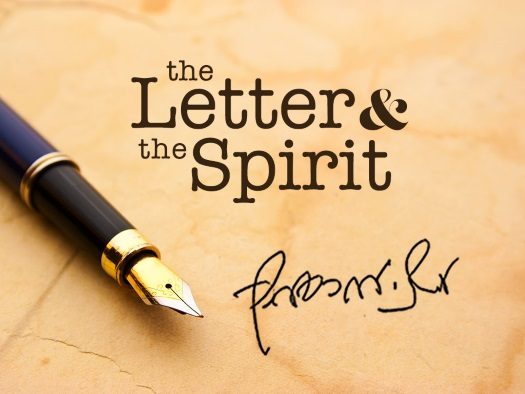
Weekly Letter: To the Editor of the J.C.
This week, we present a sharply-worded letter to the editor of the Jewish Chronicle (in the UK) – written in 1968 by the Rebbe’s trusted secretary Rabbi Nissan Mindel – protesting an article in the JC in which the author had written disparagingly about our forefathers, Rivkah and Yaakov, within the context of the narrative described in Parshas Toldos.
This letter appears in the soon-to-be published book from the Nissan Mindel Publications, Chabad in America Through the Folders of Nissan Mindel.
***
March 1, 1968
The Editor
Jewish Chronicle
London, E.C.4
Dear Sir:
I make reference to Chaim Bermant’s article, “Bible Images for Today: Jacob and Esau.” Inasmuch as my ancestors have been so unfairly maligned and vilified in said article, I am impelled to request the right o reply to clear their good name.
Bermant summarily dismisses the views of Bible commentators, claiming to base his conclusions solely on the Biblical text. I too will confine myself to the text of the Bible, so as to refute him on his own grounds.
The article characterizes my mother Rebeccah by a series of malicious epithets, none of which could be justified even by distortion of the Biblical text. On the contrary, Chapter 24 of Gen. goes to extraordinary length and detail to impress us with her virtue and kindness. Rebeccah is describes as a good looking and virtuous girl (v. 16). (Be it remembered that beauty and virtue do not always go together!). When a perfect stranger (Abraham’s servant) asks her for a drink of water, she not only offers her pitcher to him, but actually waters all his ten thirsty camels (v. 17-20).
Bermant states that “Rebeccah was a lonely young woman. She had been a child bride, 37 years her husband’s junior and as such, could hardly have enjoyed his company.” I find nothing of this in the text of the Bible. Is it his, or universal experience that young wives cannot enjoy the company of older husbands? If we are to go by the text, Isaac and Rebeccah very much enjoyed each other’s company (26:8).
Is it not also significant that Esau himself did not entrust his choicest garments to his own Hittite wives, but only to his mother Rebeccah (27:15)?
The author is entitled to his opinion that to be “a cunning hunter, a man of the field” – as the Bible describes Esau – is more “wholesome” than being a “quiet man, dwelling in tents” – as Jacob is characterized. But Jewish tradition does not share that view. Jews generally abhor hunting and ascribe no virtue to killing, wounding and maiming innocent animals for sport. On the contrary, to be a “quiet man” (tam) is a virtue according to the Bible (Job 1:1). As for “dwelling in tents,” suffice it to mention that even the wicked Balaam could not help but admire it, to wit, “How goodly are thy tents, O Jacob!” (Num. 24:5).
Bermant further asserts that Jacob was “certainly simple when exposed to the wiles of his womenfolk,” etc. Here again his fantasy runs riot. If he has in mind Rebeccah’s deception in obtaining Isaac’s blessings for Jacob, then he has read ch. 27 of Gen. rather superficially. Has he asked himself, Why did Rebeccah go to all that length, instead to having a heart-to-heart talk with her husband, as she did immediately after (27:46)? Why did not Isaac reprimand his wife for arranging the masquerade? Why did Isaac confirm the blessing to Jacob and shower new blessings upon him (27:33; (28-14)? Does all this add up to making Rebeccah and Jacob the villains Mr. Bermant would have us believe them to be?
Or perhaps Bermant thinks that Jacob was a simpleton because he consulted his wives before deciding to leave Laban (31:4)? Personally I think it rather commendable for husbands to consult their wives in such important decisions as uprooting the family and migrating to another country.
Let us, finally, turn our attention to Bermant’s hero, Esau. “Esau was incapable of a mean act,” Bermant declares. But perhaps I take too harsh a view in considering it mean of Esau to resolve to kill his twin brother as soon as their father was dead (27:41); to carry his hatred in his heart for 22 years and to attempt to make good his resolve with the aid of an army of 400 men (32:7)? That Esau changed his mind (not his heart) in the end is one of those mysteries which are linked to Jacob’s destiny and confirm that “the Guardian of Israel slumbers not, nor sleeps.” We have seen it enacted again and again in the debacle of the Arabs last June.
According to Bermant Esau deserves to “become a national hero, the subject of legend and song.” History abounds in such national heroes: Chmelnicki, Petlura, Hitler, Nasser etc. But the Bible has other views as to who deserves to be a national hero. Certainly not Esau and his people, the Edomites, who historically had nothing but hatred for the Jewish people. It would not be a propos to mention that the one-chaptered Book of Obadiah gives a more realistic description of Esau’s character and the following passage truly gives the punch: “How is Esau searched out! How are his hidden thoughts sought out! For the violence done to thy brother Jacob, shame shall cover thee,” etc. (1:6,10).
Yours,
Nissan Mindel, Long Beach, N.Y.
















So beauty
Wow
CH resident
Powerful!
While I don’t question Rabbi Mindel’s wisdom and clear thinking, besides his obvious ability to express himself so well in writing, I wonder if, and what connection the Rebbe had, to the writing of this letter.
Thank you Rabbi Schapiro